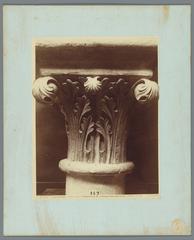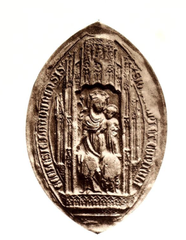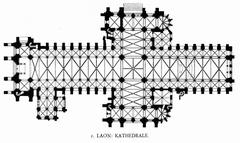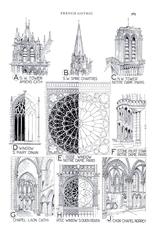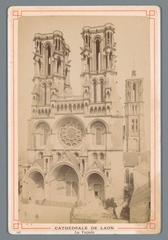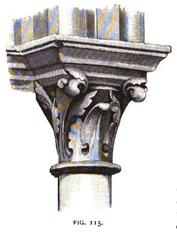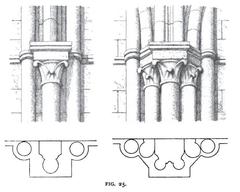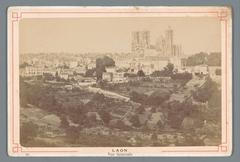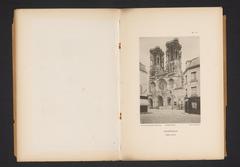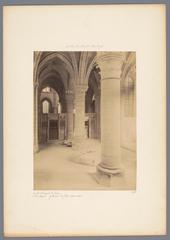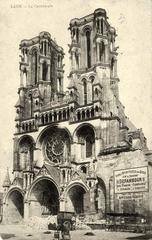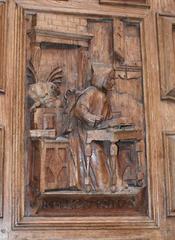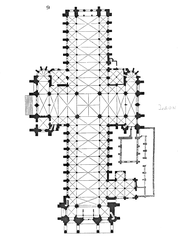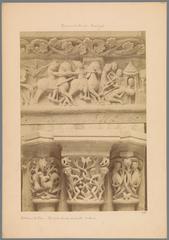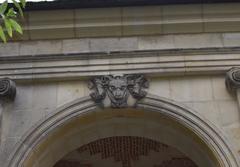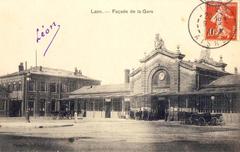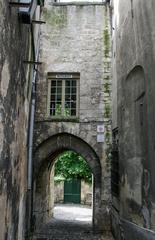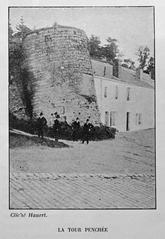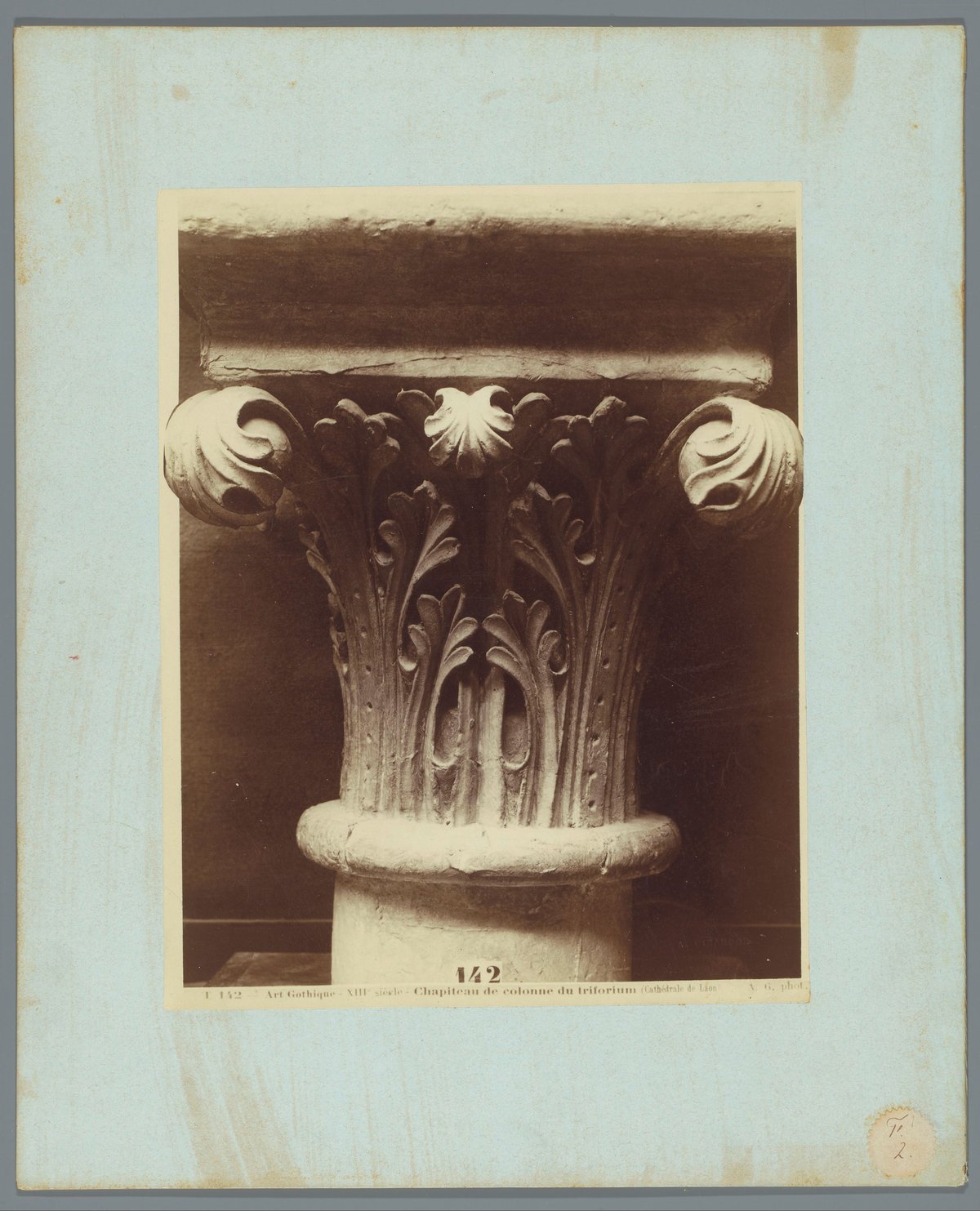
Laon Cathedral: Visiting Hours, Tickets, and Historical Sites Guide
Date: 14/06/2025
Introduction
Perched atop the ancient hill of Laon in northern France, Laon Cathedral (Cathédrale Notre-Dame de Laon) is a monumental testament to the dawn of Gothic architecture and centuries of spiritual and cultural heritage. Famed for its six iconic towers adorned with sculpted oxen, light-filled limestone interior, and pioneering structural features, the cathedral is both a beacon of faith and a landmark of artistic achievement. This guide offers a comprehensive overview of Laon Cathedral’s history, architectural marvels, visiting hours, ticketing, accessibility, and nearby attractions, ensuring you make the most of your experience at one of France’s most remarkable medieval sites.
Table of Contents
- Introduction
- Historical Overview
- Architectural Features and Symbolism
- Visitor Information
- Events and Special Experiences
- Nearby Attractions in Laon
- Frequently Asked Questions (FAQ)
- Summary and Insider Tips
- References
Historical Overview
Foundations and Medieval Turmoil
Laon has served as an ecclesiastical center since the Carolingian era, with its earliest cathedral destroyed during the Easter Insurrection of 1112—a turbulent event emblematic of Laon’s medieval strife (Connexion France). The subsequent rebuilding efforts, supported by donations from across France and England, led to the consecration of a new cathedral in 1114. However, the rapid growth of Laon necessitated an even grander structure.
The Rise of Gothic Mastery
Beginning in the late 1150s, the present Laon Cathedral was constructed as a pioneering example of Gothic architecture. Completed by 1230, it introduced innovations such as pointed arches, ribbed vaults, flying buttresses, and a distinctive four-level nave elevation. These features allowed for greater height, larger windows, and an ethereal atmosphere—hallmarks that influenced cathedrals across Europe (Sacred Destinations).
Religious, Cultural, and Intellectual Importance
Throughout the Middle Ages, Laon Cathedral was more than a center of worship; it was a renowned seat of learning, with theologian Anselm of Laon’s school attracting scholars from across the continent (Church Heritage). As a key stop on the pilgrimage route to Santiago de Compostela, the cathedral’s spiritual and civic significance shaped the region’s identity (France Voyage).
Artistic and Decorative Heritage
The cathedral’s sculptural program is renowned, from the 16 life-sized oxen on the towers—an homage to the animals that hauled stone uphill—to intricate portals, biblical scenes, and whimsical gargoyles, including a rare rhinoceros. The luminous interior showcases original 13th-century stained glass, a celebrated rose window, and rare medieval effigies (The Geographical Cure). Archaeological finds, such as medieval tombs and reliefs, continue to illuminate its layered history.
Survival and Preservation
Laon Cathedral endured upheavals from the French Revolution to the World Wars, suffering relatively little damage. Extensive restorations in the 19th and 20th centuries preserved its original character and ensured its ongoing role as a religious and cultural landmark (Ben Loomis Substack).
Architectural Features and Symbolism
Exterior Innovations
- Six Towers: Unique in French Gothic architecture, Laon’s skyline is defined by its six towers (originally intended to be seven), four at the western facade and two at the transepts (Triplyzer).
- Sculpted Oxen: The towers are famously crowned with 16 oxen statues, symbolizing the animals instrumental in the cathedral’s construction (The Geographical Cure).
- Rose Windows and Portals: The cathedral’s western and transept facades are dominated by magnificent rose windows and deeply carved portals depicting biblical narratives.
Interior Structure
- Four-Level Nave Elevation: Laon’s nave—arcades, tribune, triforium, and clerestory—maximizes height and light, creating an uplifting spatial experience (Tourisme Pays de Laon).
- Stained Glass: The 13th-century stained glass and rose windows cast colorful patterns throughout the interior.
- Choir and Sanctuary: An 18th-century wrought iron grille separates the choir, which features both original and restored glasswork.
- Decorative Elements: From biblical sculptures to the famed rhinoceros gargoyle, the artistic details blend spiritual, educational, and local symbolism.
Structural Achievements
Laon Cathedral’s use of pointed arches, ribbed vaults, and flying buttresses allowed for unprecedented architectural heights and expansive windows, serving as a model for later Gothic cathedrals like Notre-Dame de Paris and Chartres (Trip101).
Visitor Information
Visiting Hours and Tickets
- Opening Hours: Generally open daily from 8:30 am to 6:30 pm; hours may vary for services, events, or restoration. Always confirm via the official tourism site or local tourist office (Choosewhere).
- Admission: Entrance to the main cathedral is free. Guided tours and tower climbs require tickets, usually €5–€10. On the first Sunday of each month, tower access is free in accordance with national policies (Triplyzer).
Accessibility
- Main Entrance: Wheelchair accessible.
- Towers: Access via 266 steps—not suitable for visitors with limited mobility.
- Restrooms: Accessible facilities available nearby; contact the tourist office for assistance (Triplyzer).
Guided Tours and Audio Guides
- Audio Guides: Available in multiple languages, offering insights into the cathedral’s history, architecture, and art.
- Guided Tours: Book through the local tourist office or online for access to the towers and treasury (Church Heritage).
Location and Access
- Address: 8 rue du Cloître, Ville Haute, Laon (Hauts-de-France Tourism).
- How to Get There: Accessible by train from Paris (1.5 hours to Laon Station), car, or local bus. Parking is available but limited; the Upper Town is best explored on foot (Triplyzer).
- Scenic Approach: Climb the 210 steps from the lower town for panoramic views.
Dress Code and Etiquette
- Dress: Shoulders and knees covered.
- Behavior: Maintain silence during services; photography is permitted but flash and tripods may be restricted—follow posted instructions.
Facilities and Amenities
- Dining and Shopping: No cafés or shops in the cathedral, but many options are steps away in the Upper Town.
- Tourist Office: Located in the historic Hôtel-Dieu, providing maps and visitor information (Choosewhere).
Events and Special Experiences
- Religious Services: Regular Masses, weddings, and community events—check schedules as sightseeing may be limited during services.
- Concerts and Festivals: The cathedral hosts organ concerts, a classical music festival in autumn, and participates in the annual Medieval Festival (Hauts-de-France Tourism).
- Special Access: Free tower climbs on the first Sunday of each month and occasional art installations.
Nearby Attractions in Laon
- Chapelle des Templiers: A rare Knights Templar chapel (The Geographical Cure).
- Hôtel-Dieu: France’s oldest hospital, now serving as the tourist office.
- City Ramparts and Towers: Medieval walls and gates, ideal for scenic walks (Hauts-de-France Tourism).
- Musée d’Art et d’Archéologie: Regional museum with artifacts from prehistory to the 18th century (Triplyzer).
Frequently Asked Questions (FAQ)
Q: What are Laon Cathedral’s current visiting hours?
A: Usually 8:30 am to 6:30 pm daily, but check the official site for updates.
Q: Is admission free?
A: Yes, to the main cathedral. Guided tours and tower access require tickets.
Q: Are guided tours available?
A: Yes, bookable on-site or through the tourist office.
Q: Is the cathedral wheelchair accessible?
A: Yes, for the main entrance and nave; towers are not accessible due to stairs.
Q: When is the best time to visit?
A: Spring and fall for mild weather and fewer crowds; early mornings and weekdays are quietest.
Summary and Insider Tips
Laon Cathedral is a striking example of early Gothic ingenuity, blending spiritual, intellectual, and artistic traditions. Key highlights include:
- Six distinctive towers with oxen sculptures
- Four-level nave elevation and luminous limestone interior
- Original stained glass, intricate portals, and rare medieval sculpture
- Panoramic tower views (tower climb ticketed)
- Proximity to medieval ramparts, museums, and historic chapels
Insider Tips:
- Arrive early or late to avoid crowds.
- Check for concerts or festivals during your visit.
- Wear comfortable shoes for cobbled streets and tower climbs.
- Visit on the first Sunday of the month for free access to paid areas.
- Use the Audiala app for audio guides and up-to-date information.
For a comprehensive experience, pair your visit with a stroll through Laon’s Upper Town and ramparts (Choosewhere; The Geographical Cure).
References
- Fire and murderous fury in medieval French city Laon, Connexion France
- Laon Cathedral, Sacred Destinations
- Discovering Laon: Secrets of the Cathedral Notre-Dame, Church Heritage
- Other Amazing Notre-Dames Outside Paris, The Geographical Cure
- Laon Cathedral Guide, Tourisme Pays de Laon
- Laon Cathedral Guided Tour, Church Heritage
- Laon Visitor Guide, Choosewhere
- Big Love for Laon, France, The Geographical Cure
- Things to Do in Laon, Triplyzer
- Laon Travel Guide: Top 10 Must-Visit Tourist Places, Tourist Places Guide
- Laon, Hauts-de-France Tourism
- Laon Cathedral, Wikipedia
- Laon Cathedral, Spotting History
- Greatest Gothic #42: Laon Cathedral, Ben Loomis Substack
- Laon Cathedral, France Voyage
For more information and virtual resources, visit the official Laon Cathedral tourism website.
